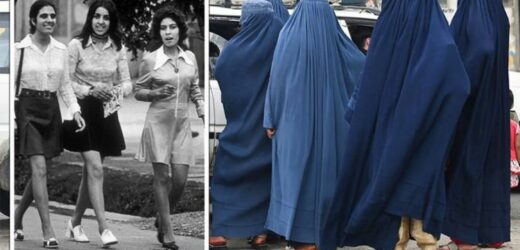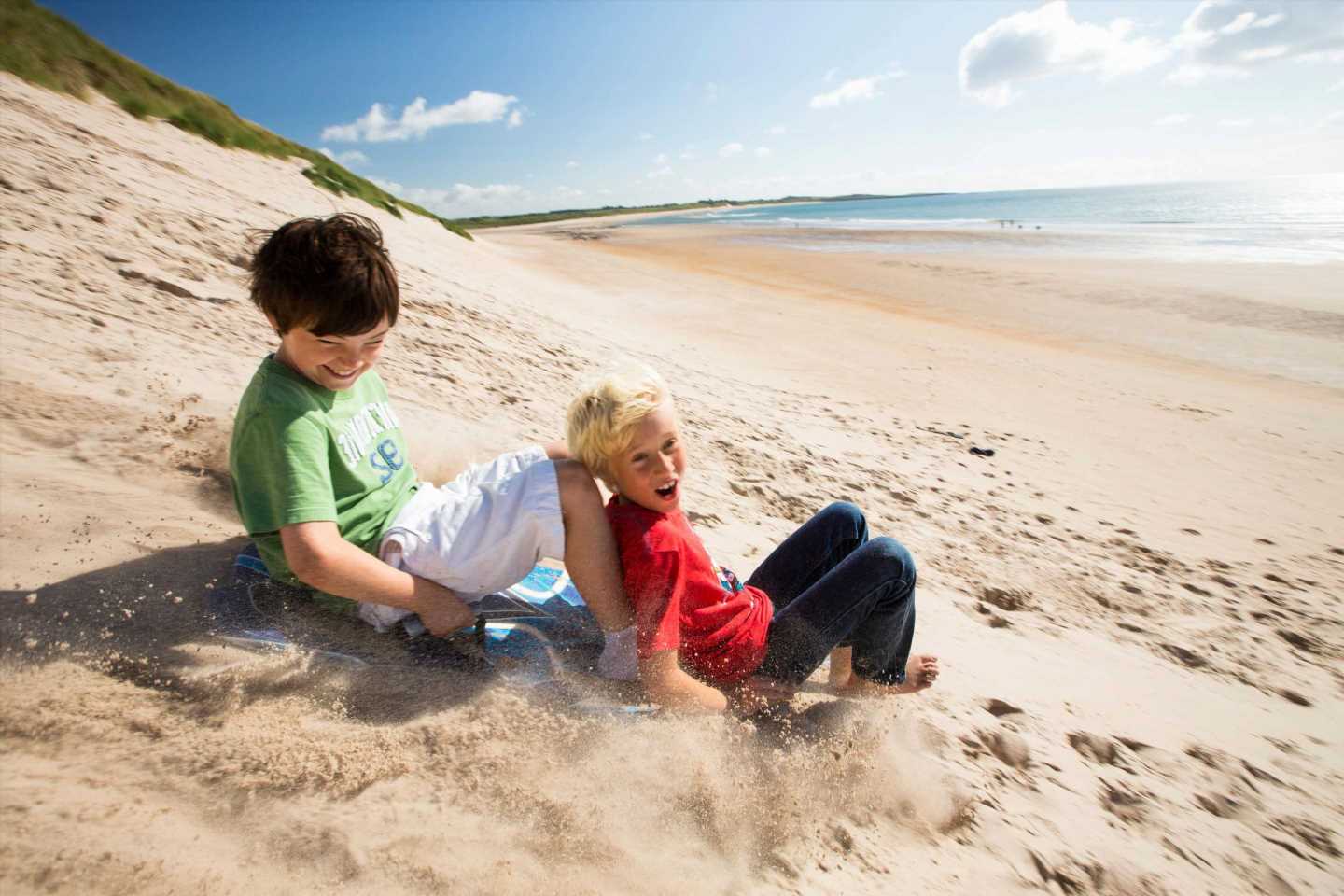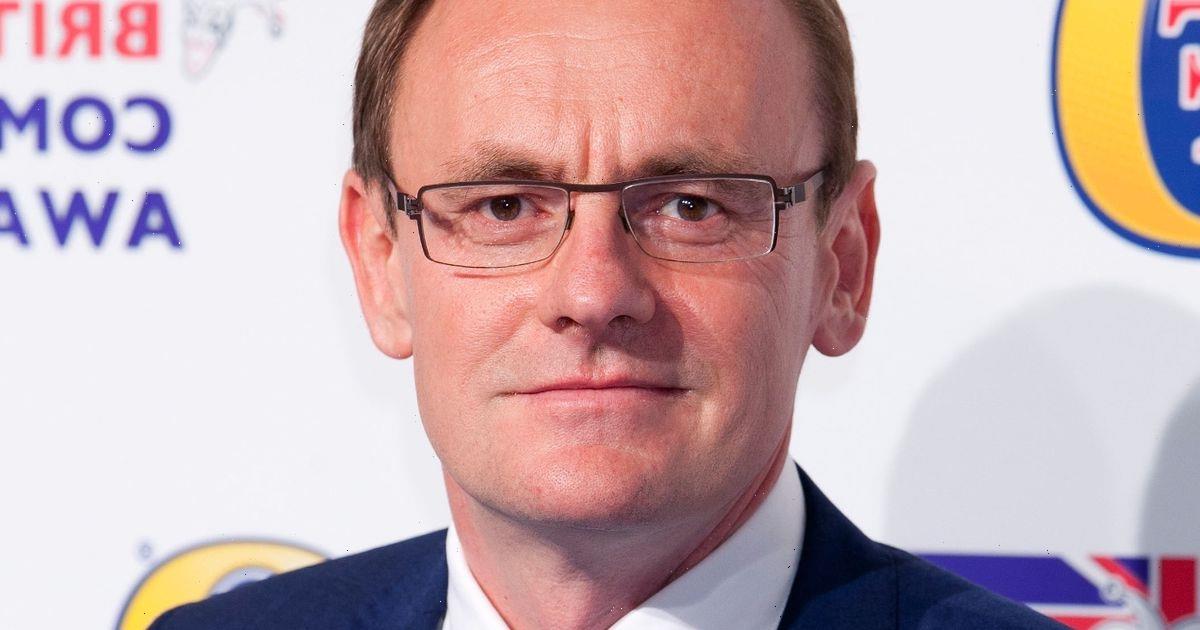Afghanistan: Women protest against Taliban in Kabul
We use your sign-up to provide content in ways you’ve consented to and to improve our understanding of you. This may include adverts from us and 3rd parties based on our understanding. You can unsubscribe at any time. More info
Britons and Afghan refugees are beginning to arrive in the United Kingdom after Taliban troops seized control of Kabul on Sunday. Passengers arrived at RAF Brize Norton in the early hours of Wednesday morning. Boris Johnson stressed Britain owed “a debt of gratitude to all those who have worked with us to make Afghanistan a better place over the last 20 years.”
He added: “Many of them, particularly women, are now in urgent need of our help.”
Taliban spokesman Zabihullah Mujahid yesterday made his first public appearance in 20 years after insurgents defeated the Afghan government.
He outlined how Afghanistan’s future will abide by the nation’s “national ethics” and “national tradition” under strict Sharia Law.
He said: “Islam is important in Afghanistan and anything against Islam will not be accepted!


“All will have rights under the umbrella of Islam.”
Fears have emerged that women will be stripped of their freedoms under Taliban control.
During their brief stint of control in Afghanistan between 1996 and 2001, women were forced to wear the all-covering burka and were not allowed to work.
Girls could attend school, but had to leave when they turned 12.


Labour MP for Tooting, Dr Rosena Allin-Khan, yesterday tweeted: “World leaders washing their hands of Afghanistan, is shameful.
“There are women and girls who have led lives incompatible with Taliban beliefs for two decades – to turn our back on them now would be a catastrophe.”
Television, music and cinemas were also banned.
The BBC yesterday reported public music in shopping centres had already been turned off following the insurgents’ takeover.
DON’T MISS
Horror chart shows how reign of terror in Afghanistan never ended [INSIGHT]
Biden said Afghanistan not like Vietnam: ‘No one will be air-lifted’ [QUOTES]
Iran paid Taliban ‘bounties’ to attack US airbase – intelligence [INSIGHT]


However, astonishing photos have emerged of life in Afghanistan in the Sixties, with a seemingly more liberal and westernised society.
While the nation has been fractured by internal conflict and foreign intervention for centuries, it made tentative steps towards modernisation in the Fifties and Sixties.
There was a brief, relatively peaceful era when modern buildings were constructed in Kabul alongside older, traditional mud structures.
Burkas became optional for a time and women were allowed to attend university and go to work.

One photograph from 1962 shows female Afghan medical students and their female professor examining a plaster showing a part of a human body.
While two more, both from the same era, show young girls being taught at school.
Arguably the most astonishing of all, taken in 1967, is a photo of four young Afghan women outside the Kabul Airport dressed in western fashion.
Their outfits present a vivid change from the tradition of years gone by.

While Afghanistan appeared to be on a path towards an open, prosperous society, progress was halted in the Seventies as a series of bloody coups, invasions and civil wars became, reversing almost all the positive steps taken forwards.
In 1973, King Mohammed Zahir Shah was deposed and the Republic of Afghanistan established.
The coup was executed by then-Army commander and prince, Mohammed Daoud Khan, assisted by leftist Army officers and civil servants.
The King decided not to retaliate and remained in exile in Italy.

Then, in 1978, Afghan communists known as the People’s Democratic Party of Afghanistan (PDPA) overthrew President Khan in the Sowr Revolution, killing him and most of his family at the presidential palace.
The revolution resulted in the creation of a Soviet-aligned government with Nur Muhammad Taraki as President.
The revolution, which was ordered by PDPA member Hafizullah Amin, who would become a significant figure in the revolutionary government, marked the onset of 43 years of conflict in the country.
In the Eighties, the US and the Soviet Union waged a war of proxy in Afghanistan, with the USSR finally withdrawing troops in 1989.

This is when Taliban influence dramatically increased and their strict laws on women began to be enforced.
By 1996, they had control of Kabul and ruled with an iron fist for five years, before the US-led intervention from the West in 2001.
The current situation looks set to erase any progress for women’s rights made in the last 20 years.
Boris Johnson will lead a debate in Parliament today on the ongoing crisis.
Source: Read Full Article


